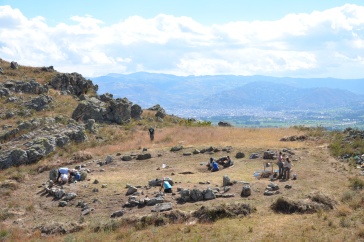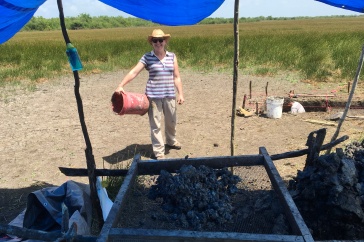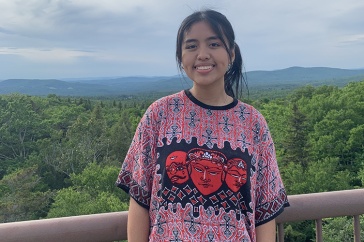
Jeannie Sowers, associate professor of political science and director of UNH’s international affairs program, delves into some of the most pressing issues of our time, and while immersed in global research, she has students working at her side.
One of those students, Rory O’Neil ’20, sums up what it is like to work with a professor of Sowers’ caliber as an undergraduate.
“Professor Sowers is such an experienced and respected researcher in her field that I could not believe I had the chance to work with her,” O’Neil says. “She was genuinely so excited to hear about my interests and work with me on a project that I felt at ease immediately in the research group.”
Earlier this year, Sowers was awarded a two-year grant from the Gerda Henkel Stiftung Foundation for her project “Targeting Environmental Infrastructures: Water, Energy, and Civilians in the New Middle Eastern Wars,” with Erika Weinthal of Duke University. The project analyzes how water, energy and sanitation infrastructures are targeted in ongoing warfare in the Middle East and North Africa and the devastating effects on civilians.
Environment, Conflict, Law
Read about the research O'Neil is doing with Sowers and her team in this UNH Today feature.
“Since mass uprisings spread across the region in 2011, embattled regimes have unleashed great violence against their populations — aided and abetted in many cases by regional and global powers that complicate efforts at conflict resolution,” Sowers explains. “All parties to the conflicts have increasingly directly and indirectly targeted water, energy and sanitation networks — through airstrikes, artillery bombardments, and urban sieges — with devastating effects for civilian populations.”
One example is Yemen, where the effects have been nothing short of heartbreaking, Sowers says.
“The civil war, coalition airstrikes and the Saudi Arabian-led naval/air blockade of the country have crippled water and sanitation networks and the health infrastructure and led to widespread food shortages as prices skyrocket. The result is a very serious outbreak of cholera, widespread malnutrition and an emerging famine,” she says.
For O’Neil’s part in the research, she meets with Sowers every couple of weeks and maintains regular contact via email between those meetings.
“She is constantly updating me with new articles and is always looking out for future opportunities for me,” O’Neil says of Sowers.
“I enjoy many different aspects of working with students like Rory, who are self-motivated, independent thinkers with a passion for learning,” Sowers says. She adds that one of the most rewarding aspects is “when students realize that they have an insight that they did not have before, which they are excited to share, and when their research leads them to think in new directions. This could be a new avenue of intellectual inquiry, a career option they had not considered, a new place to travel and learn or finding an issue that that matters to them and to the broader world.”
Learn more about Sowers and her research and teaching specialties.
-
Written By:
Jennifer Saunders | Communications and Public Affairs | jennifer.saunders@unh.edu | 603-862-3585




















































